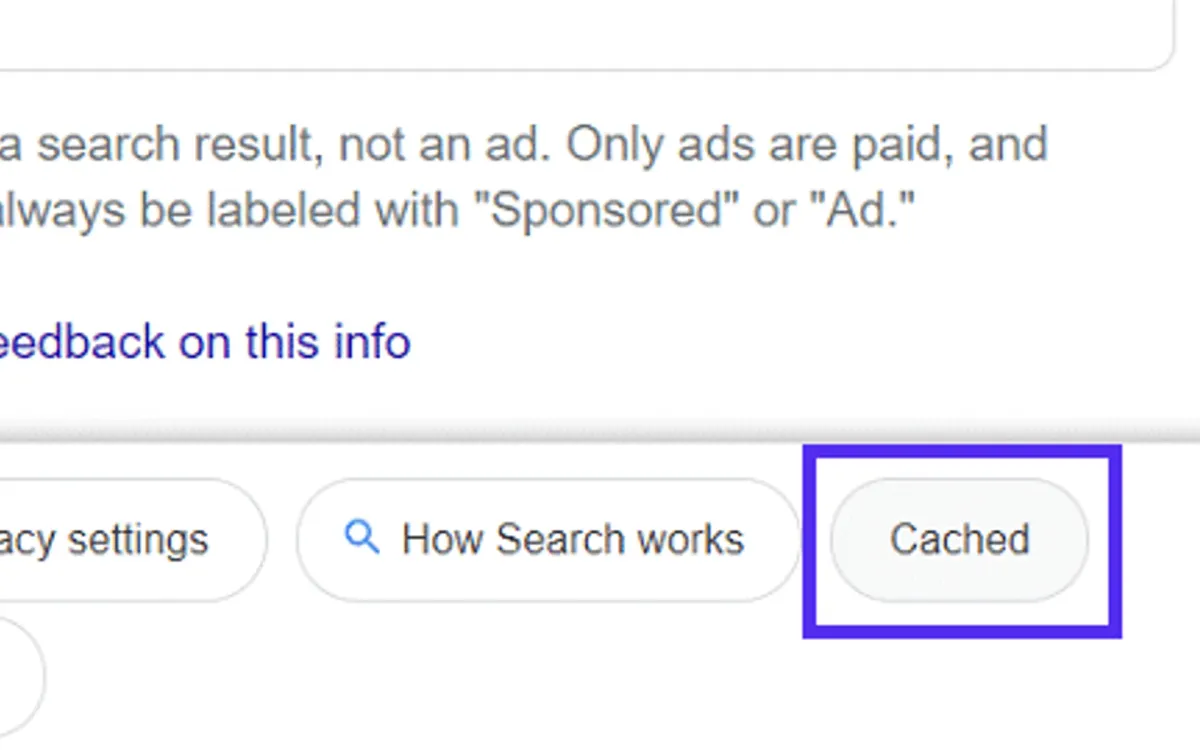
On September 24, 2024, Google officially removed the ability to manually check cached versions of web pages directly from search results. Google's cache feature allowed users to view a snapshot of a web page as it appeared when Google last crawled it. This tool was particularly useful for:
- Accessing content when a website was temporarily down
- Viewing older versions of frequently updated pages
- Comparing changes in website content over time
- Verifying if Google had indexed recent updates to a page
According to Barry Schwartz, a prominent search engine optimization (SEO) expert, the cache feature was one of Google's oldest tools, dating back to the early days of the search engine.
The removal of the cache feature didn't happen overnight. Signs of its impending discontinuation had been apparent for months:
- December 1, 2023: Barry Schwartz first noticed the disappearance of cache links from search results for numerous queries and sites.
- January 29, 2024: Schwartz sought confirmation from Google's Search Liaison about the feature's status.
- February 1, 2024: Google's Search Liaison confirmed that the cache feature had been removed, citing improved webpage loading reliability as the reason for its obsolescence.
The removal of the cache feature has significant implications:
For General Users
- Reduced ability to access content when websites are temporarily unavailable
- Loss of a quick way to view older versions of frequently updated pages
For SEO Professionals
- Elimination of a method to verify if Google has processed recent website updates
- Need for alternative strategies to confirm indexing status
SEOwner, an SEO expert, suggested an alternative method for checking if Google has processed site updates: "The only way to check 'cache' now, or determine if Google has processed an update to your site (far as I'm aware), would be add/change a sentence then search it in quotes. Once it appears, you know Google has processed the update."
Google's Search Liaison explained the decision to remove the cache feature: "It was meant for helping people access pages when way back, you often couldn't depend on a page loading. These days, things have greatly improved."
To address the gap left by the cache removal, Google has taken steps to provide alternative solutions:
- On September 11, 2024, Google announced the addition of links to previous versions of webpages from the Internet Archive's Wayback Machine in their "About this result" panel.
- This move aims to provide users with quick access to historical versions of web pages, particularly beneficial for research purposes.
Technical details of the change
The removal of the cache feature involves several technical aspects:
- The
cache:search operator no longer functions in Google Search. - The
webcache.googleusercontent.comURLs, previously used to access cached pages, now redirect to search results withcache:prefixed to the domain. - Google has updated its documentation to remove references to the cache feature.
The SEO community has expressed mixed feelings about the change:
- Some professionals, like David Brown, find the removal "really frustrating" and see "no real functional reason for it other than helping out pay/subscription wall sites."
- Others view it as an inevitable evolution, given the improved reliability of web hosting and content delivery networks.
As the SEO and web development communities adjust to this change, it's likely that new tools and methods will emerge to fill the gap left by Google's cache feature. In the meantime, professionals are advised to:
- Utilize alternative methods to verify indexing status
- Explore third-party archiving services for historical page versions
- Stay informed about any future announcements from Google regarding search result features
The removal of the cache feature underscores the dynamic nature of search technology and the need for professionals to remain adaptable in their strategies and tools.
Key Facts
- Date of removal: September 24, 2024
- Last major update to cache feature: September 11, 2024 (addition of Internet Archive links)
- Primary impact: Loss of ability to view Google's cached versions of web pages
- Affected users: General public, SEO professionals, researchers
- Google's stated reason: Improved reliability of web page loading

